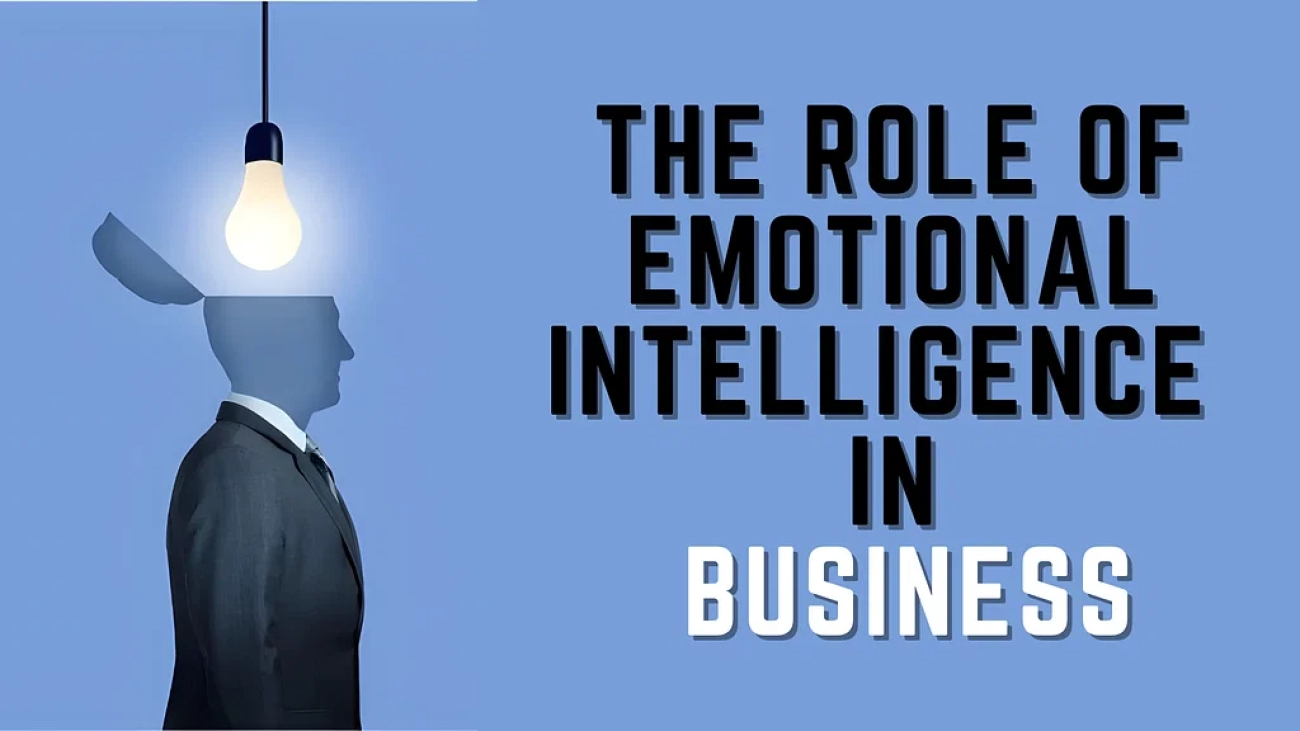Discover the pivotal role of emotional intelligence in business leadership. Learn its importance, examples, and how to improve EI for effective management!
The Role of Emotional Intelligence in Effective Business Leadership
In today’s rapidly evolving corporate landscape, leadership extends beyond just managing tasks and directing employees. Effective leadership requires a deep understanding of human emotions and the ability to harness them to inspire, motivate, and foster growth within a team. This understanding is encapsulated in a concept known as emotional intelligence (EI), and its role in business leadership cannot be overstated. In this article, we will explore the importance of emotional intelligence in leadership, provide examples of its impact in the workplace, and offer insights on how to improve emotional intelligence to become a better leader.
Understanding Emotional Intelligence in Leadership
Emotional intelligence refers to the capacity to recognise, understand, and manage one’s own emotions as well as those of others. It encompasses a set of crucial skills, including self-awareness, self-regulation, empathy, and social skills. A leader who possesses high emotional intelligence can effectively navigate complex interpersonal dynamics, communicate with authenticity, and create a positive work environment.
Importance of Emotional Intelligence in Leadership
Leaders with strong emotional intelligence exhibit exceptional qualities that set them apart from their counterparts. They are approachable, compassionate, and capable of fostering a sense of trust and loyalty among their team members. By being attuned to their emotions and those of others, emotionally intelligent leaders can anticipate potential conflicts and address them proactively. Moreover, they are more likely to be adaptable in challenging situations, making them effective problem-solvers and decision-makers.
One crucial aspect of emotional intelligence in leadership is the ability to understand and manage one’s own emotions. Self-awareness allows leaders to recognise their strengths and weaknesses, enabling them to play to their strengths while seeking support or development in areas that need improvement. A leader who is aware of their emotions can also maintain composure during high-pressure situations, inspiring confidence and calm in their team.
Examples of Emotional Intelligence in Leadership
To better comprehend the impact of emotional intelligence in business leadership, let’s examine some real-world examples:
- Empathetic Communication: A leader with high emotional intelligence listens actively and empathetically to their team members. They consider the feelings and perspectives of others before making decisions, fostering an inclusive and supportive environment. Learn about empathy in detail on NCBI’s website here.
- Conflict Resolution: Instead of avoiding conflicts, emotionally intelligent leaders address them openly and constructively. By acknowledging the emotions involved and offering a solution-focused approach, they can diffuse tension and find resolutions that benefit all parties involved. Here’s more on conflict resolution.
- Inspirational Leadership: Emotionally intelligent leaders can inspire and motivate their teams by sharing a compelling vision and connecting with the values and aspirations of their employees. This ability to evoke an emotional response enhances employee engagement and commitment. If you want to know how to become an inspirational leader, check out this article on the characteristics of an inspirational leader by Forbes.
Importance of Emotional Intelligence for Managers
For managers, emotional intelligence is even more crucial as they play a pivotal role in the success of their teams and the overall organisation. Managers must lead by example, demonstrating emotional intelligence in their interactions with team members, clients, and stakeholders.
When managers exhibit emotional intelligence, they foster a positive work culture that encourages open communication, creativity, and collaboration. They are better equipped to understand the needs and concerns of their team members, thus providing necessary support and encouragement for individual growth and development.
Moreover, emotionally intelligent managers are adept at recognising and celebrating their employees’ achievements, reinforcing a sense of appreciation and job satisfaction among the team.

How to Improve Emotional Intelligence in Leadership
Fortunately, emotional intelligence is a skill that can be developed and honed over time. Here are some practical steps for leaders to improve their emotional intelligence:
-
Self-Reflection
Take time to reflect on your emotions, reactions, and behaviours. Consider journaling or seeking feedback from trusted colleagues to gain insights into your emotional responses in various situations.
-
Active Listening
Practice active listening by giving your full attention to others during conversations. Avoid interrupting and validate their emotions and concerns.
-
Empathy Development
Put yourself in the shoes of others to understand their emotions and perspectives. Practising empathy enhances your ability to connect with your team and build rapport.
-
Stress Management
Develop healthy coping mechanisms to manage stress and pressure effectively. Engage in activities like exercise, mindfulness, or hobbies that help you relax and recharge.
-
Continuous Learning
Invest in resources that focus on emotional intelligence and leadership development. Attend workshops, seminars, or read books that delve into the subject.
Emotional Intelligence in the Workplace
Emotional intelligence extends its influence beyond leadership and is a fundamental aspect of a thriving workplace culture. When emotional intelligence is cultivated throughout an organisation, it creates an atmosphere of trust, empathy, and understanding.
Employees feel valued and supported, which leads to higher job satisfaction and increased productivity. Additionally, teams with strong emotional intelligence collaborate more effectively, resulting in innovative solutions and enhanced problem-solving capabilities.
Moreover, emotionally intelligent organisations are better equipped to manage change and uncertainty. Leaders and employees can navigate challenges with resilience, adaptability, and cohesion, fostering a culture that embraces growth and learning.
To Sum Up …
Emotional intelligence plays a pivotal role in effective business leadership. Leaders who possess emotional intelligence can inspire, motivate, and guide their teams to achieve remarkable results. By understanding the importance of emotional intelligence in leadership, recognising its impact through real-life examples, and implementing strategies for improvement, leaders can cultivate a positive and thriving work environment where success becomes a shared journey.
Leadership is not just about the bottom line; it is about the people who drive the organisation towards success. Embracing emotional intelligence allows leaders to connect with their teams on a deeper level and create a harmonious and prosperous workplace for all.


Add a Comment